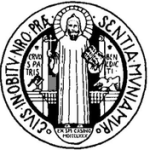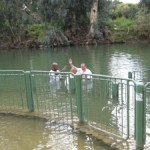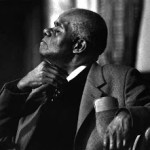I have been having been trying to determine which spiritual formation material I will go through next and blog about. Most recently I went through The Spiritual Exercises of Saint Ignatius, a classic work from outside my tradition. Last year, I blogged as I went through SoulShift, a modern work written by Wesleyans. I have been reviewing material wondering if I should read something modern or another classic, try a different denomination’s material or promote something Wesleyan, find a work that is internal focused or action focused.
My searching led me to begin to categorize small group and Christian living material into three categories: There are books which focus primarily on either: (1) what we should know (studies on individual books of the Bible or doctrine as examples), (2) what we should do (Christian disciplines or finances as examples), and (3) what we should be (attitude and thinking transformation). All of these have their place, but I began to wonder this: In what order should we approach knowledge, practice, and being? There may or may not be one correct answer for every individual, but I think it warrants the philosophical discussion.
Knowledge ► Practice ► Being
First we learn something, and then begin to practice what we learn. Over time the practice becomes a part of who we are. This is an approach I used to take because it is a good way to develop a habit. However, I think this approach may rely too much on personal work and not enough on God’s power. A person can look really spiritual on the outside and still not have achieved transformation of their being (Matthew 23:25-28).
Knowledge ► Being ► Practice
First we learn something, and that knowledge changes us. Because we are changed, our behavior follows. I have a problem with this approach because knowledge may or may not be transformative (1 Corinthians 8:1). However, spiritual knowledge can correct our thinking and behavior (2 Timothy 2:16-17).
Practice ► Knowledge ► Being
Do the right thing, even if we do not understand why. Eventually we will understand, and it will be a part of us. This is a child’s way of formation. At two-years-old, my daughter does not understand why we work with her to brush her teeth, but we make her do it anyway. Eventually she will understand that teeth brushing is necessary to keep one’s teeth, enjoy food, and have a nice smile. Hopefully, by the time she does understand, maintaining good dental hygiene will be simply part of her life. I can see this approach being necessary to prevent an immature person from doing something harmful.
Practice ► Being ► Knowledge
Do the right actions and eventually our feelings (being) will follow. Then we will be in a right state of mind to understand. I have heard this approach in counseling situations. Here is a common sermon illustration of the principle. A wife goes to a lawyer because she wants a divorce. The lawyer will need some time to complete the paperwork, so he suggests that the wife use the time to set her husband up for a fall. For the next month she is to be as nice and loving to him as she can be, and then at the end of the month, when he is happiest, stick it to him good by handing him divorce papers. After a month goes by, when the lawyer shows up at the home with the divorce papers, the wife’s reply is, “Why would I want to divorce him? I love him!” It is a funny story, and sometimes practice does precede feelings (Genesis 4:6-7). However, a change of feelings are not necessarily the same thing as a change of being. Feelings are much more easily changed.
Being ► Practice ► Knowledge
We are changed, and that change expresses itself in our behavior. Over time we learn both why our behavior changed and more things we should change. I have seen it happen where a person comes to know Jesus and something in their behavior immediately changes. When someone asks them why, the response is simply, “Jesus changed my heart.” Nobody necessarily told them to put off the old self and put on the new (Ephesians 4:22-24), they just stopped cursing and starting encouraging. This did not happen to me, but I came to know Jesus as a child; it may be more common for someone who forms a relationship with Jesus that is older.
Being ► Knowledge ► Practice
We are changed, and then desire to learn more of what God wants us to be, which we then put into practice. Salvation (regeneration and the process of sanctification) is God’s work, and that work begins with the new birth. I believe God has to transform a person before the knowledge and practice will have lasting effect. Next comes learning, which could be anything from the prompting of the Holy Spirit to the conscience to Bible study. From that knowledge of both our new self and God’s law written on the heart and mind, and the power of the indwelling Holy Spirit, comes the presenting of our bodies as living sacrifices (Romans 12:1-2). I think this is the pattern is Ezra 7:10, only to this Ezra adds continuing the cycle in others as the final step.
©2012 Paul Tillman







